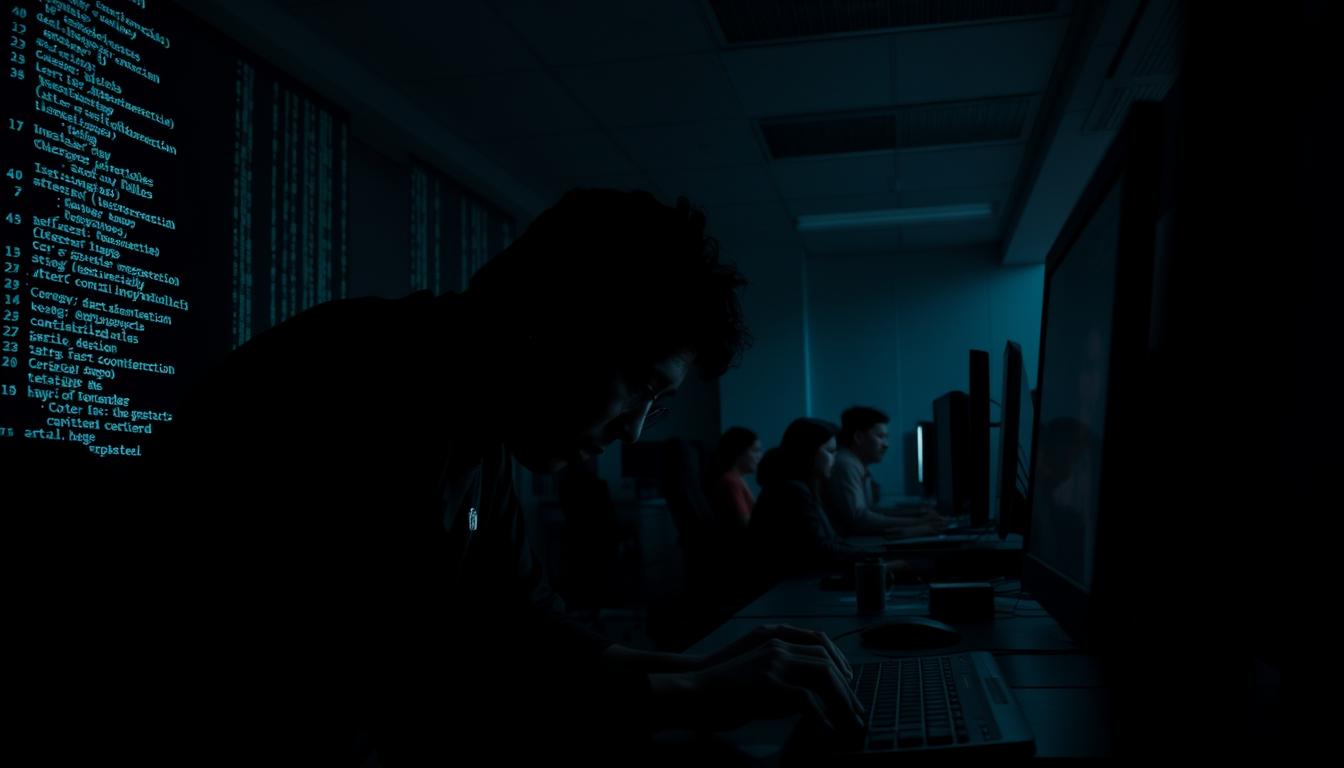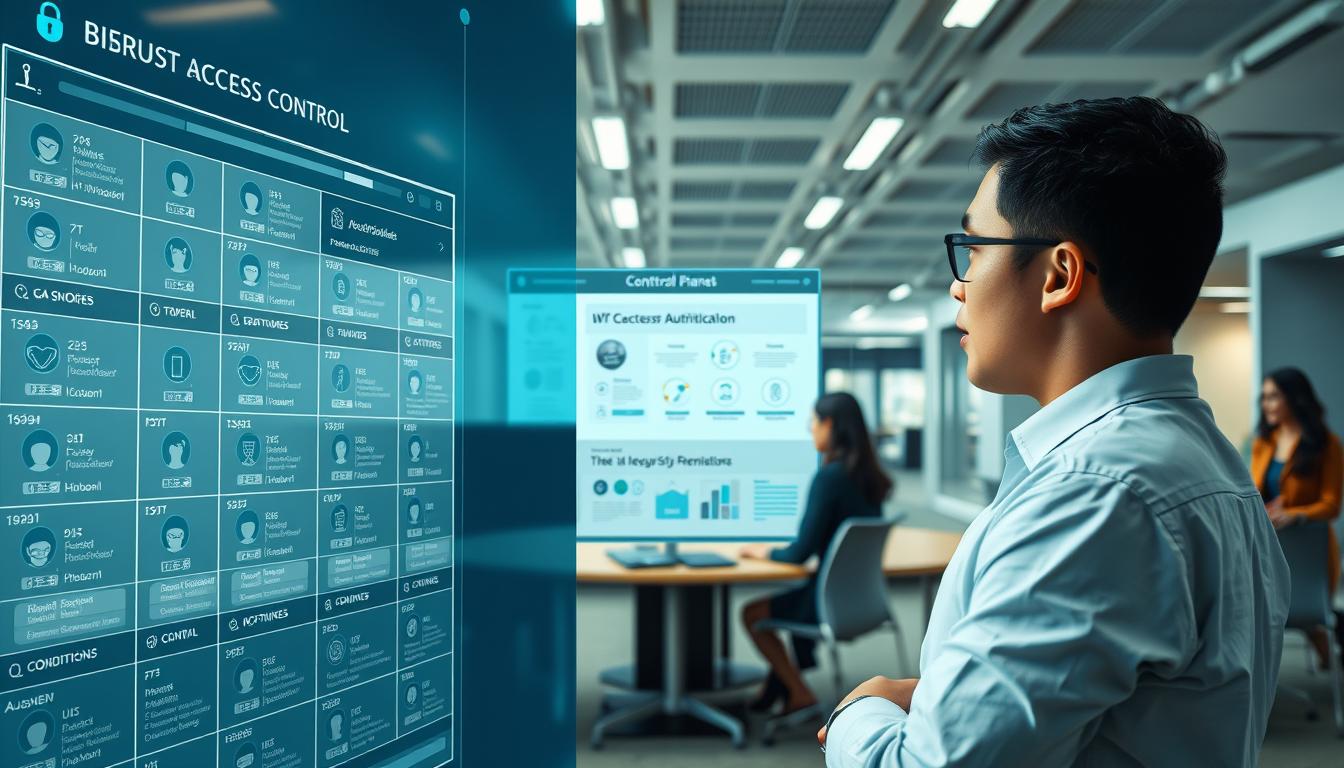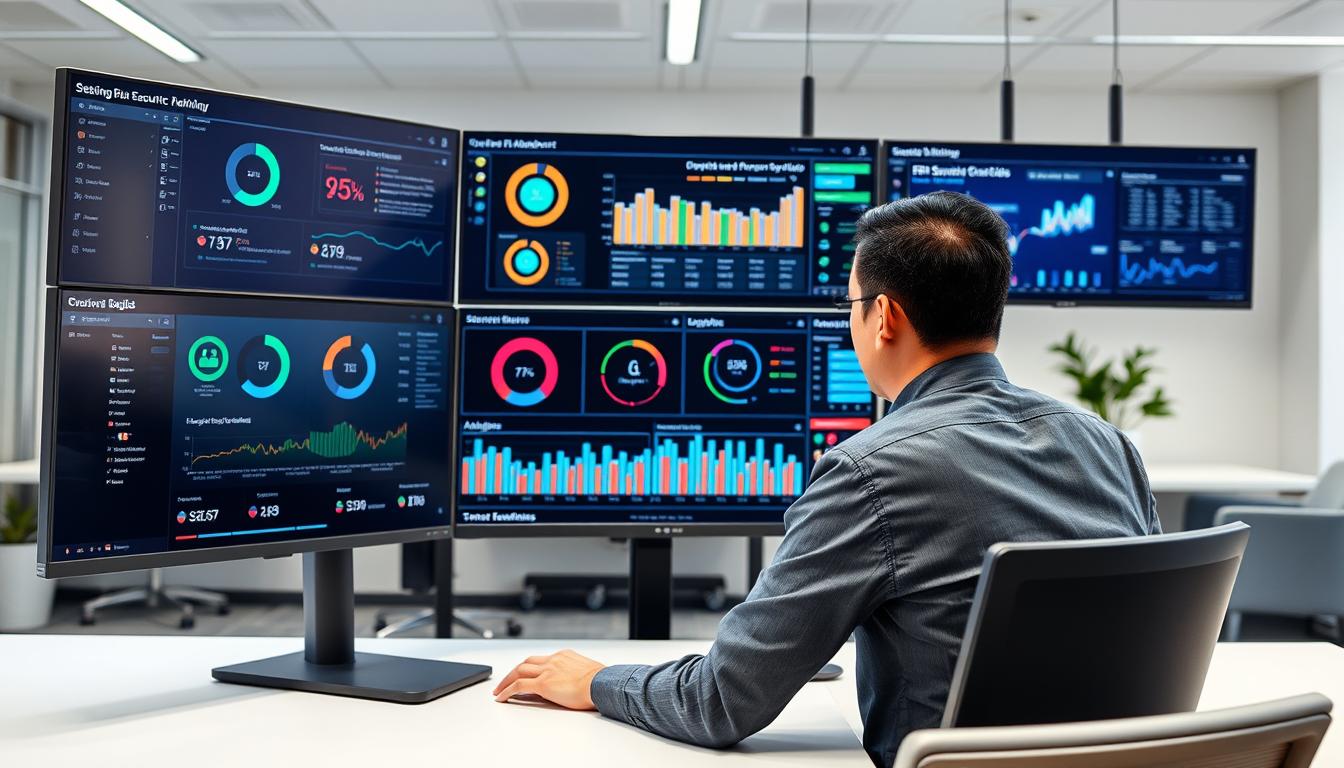Have you thought about how vulnerable your ERP system might be to data breaches? In today’s digital world, keeping your ERP system safe is crucial. This is true for small to mid-sized businesses in the Philippines. A small security issue in your ERP system can cause big financial losses and harm your reputation.
This article will show you how to avoid data breaches. We’ll focus on the special challenges and solutions for protecting your ERP system.
Key Takeaways
- Data breaches can severely compromise ERP security and impact business operations.
- Understanding ERP system vulnerabilities is the first step toward effective protection.
- Regular software updates are essential for maintaining cybersecurity in ERP systems.
- Implementing strong user access controls can prevent unauthorized breaches.
- Continuous monitoring and timely incident response are critical for ongoing ERP security.
- Engaging with ERP security experts can enhance your organization’s defenses.
- Conducting regular security audits can help identify and mitigate risks.
Understanding the Importance of ERP Security
In today’s digital world, ERP security is more important than ever. It’s crucial to protect sensitive data in Enterprise Resource Planning systems. A strong ERP security framework helps fight off unauthorized access and cyber threats.
Knowing the key elements of security can make an organization much stronger. This knowledge is vital for keeping data safe.
What is ERP Security?
ERP security is about protecting ERP systems from cyber threats. It stops unauthorized access, data corruption, and internal breaches. Since ERP systems are key to business operations, keeping them safe is essential for success.
The Impact of Data Breaches on Businesses
Data breaches can severely harm a business. They cause financial losses, damage reputation, and lead to legal issues. Losing customer trust can also hurt future business.
Even one breach can disrupt operations and cause long-term problems. Businesses must stay alert to avoid these issues.
Statistics Highlighting ERP Vulnerabilities
Recent data shows ERP systems are often breached. A shocking 64% of companies have faced data breaches in their ERP systems. These numbers highlight the need for better security to protect data and keep operations running smoothly.
Common Causes of Data Breaches in ERP Systems
It’s key for businesses to know why data breaches happen in ERP systems. These issues often come from the system’s complexity, old software, and how user privileges are managed. Knowing these weak spots helps companies create better security plans to protect their data.
Complex Architecture and Its Risks
ERP systems are complex, making them a target for hackers. The system’s design, with many functions and departments, can be a risk. If security is not set up right, it can leave big holes for attackers to find.
Outdated Software and Forgotten Patches
Old software is another big reason for data breaches. Keeping ERP systems updated is crucial for security. If updates are not applied, systems can be attacked through known weaknesses. It’s important to keep software up to date to keep data safe.
User Privilege Mismanagement
Managing user privileges is key to a secure ERP system. Poor management can lead to unauthorized access, increasing the risk of breaches. Strong policies that limit access to what’s needed for each role help reduce risks from users with too much power.
Preventive Measures for ERP Data Security
Keeping ERP data safe is key. Companies can lower the chance of data breaches by using strong strategies. These include regular software updates, strict password rules, and multi-factor authentication (MFA). Each method is crucial for keeping sensitive data safe from unauthorized access.
Regular Software Updates and Patching
Keeping software up to date is a basic but vital step. Updates fix holes that hackers could use. If updates are ignored, systems become vulnerable, risking all the hard work done before.
By keeping software current, companies stay ahead of new threats.
Strong Password Policies
Having strict password rules is also essential. Users should make unique and complex passwords to keep hackers out. Companies should teach users to change passwords often and avoid common phrases.
This not only keeps data safe but also encourages a culture of security within the company.
Multi-Factor Authentication (MFA)
Multi-factor authentication (MFA) adds a vital layer of protection. It requires more than one way to verify identity before access is granted. This could be a password and a mobile device.
Having MFA in place greatly strengthens ERP data security and keeps sensitive information safe.
Implementing Robust Access Controls
Setting up strong access controls is key to keeping ERP systems safe. These controls protect sensitive data and make sure users are accountable. A good access control plan lowers the risk of unauthorized access, keeping important information safe.
Role-Based Access Control (RBAC)
Role-Based Access Control is vital for ERP security. It gives access based on job roles, making admin easier and reducing insider threats. Employees only see data they need for their job, keeping sensitive info safe.
This approach improves security and fits with the company’s structure.
Monitoring User Activities and Access
User activity monitoring adds an extra layer of security. It tracks who accesses data and when, helping spot suspicious activities early. This makes it easier to respond to threats and follow rules.
By watching closely, businesses stay ahead of unauthorized access attempts.
The Role of Continuous Monitoring in ERP Security
Continuous monitoring is key to keeping Enterprise Resource Planning (ERP) systems safe from cyber threats. It uses advanced systems for real-time threat detection. This way, businesses can spot and fix potential problems fast.
This approach not only keeps data safe but also makes the system stronger.
Real-Time Threat Detection Systems
Real-time threat detection systems keep an eye on ERP environments. They use smart algorithms and machine learning to check user behavior and system issues. When threats appear, they send out alerts right away.
This helps businesses make quick decisions and take action fast. With continuous monitoring, they can stay one step ahead of threats.
Incident Response and Management
Every business with ERP systems needs a strong incident response plan. A good plan gives clear steps for handling threats. This way, the company can act fast.
Combining proactive threat detection with quick response helps limit damage. It also keeps the business running smoothly. Training employees well helps them handle incidents better.
By adding training programs and simulations, companies can get even better at responding to threats.
| Key Components | Features | Benefits |
|---|---|---|
| Continuous Monitoring | Real-time data analysis, alert notifications | Early threat identification, reduced downtime |
| Threat Detection Systems | Machine learning and behavioral analytics | Adaptive security measures, improved accuracy |
| Incident Response Plan | Defined protocols, team roles | Quick recovery, minimized impact |
Post-Implementation Support for Ongoing Security
After setting up an ERP system, ongoing support is key to keeping it secure. This support ensures the system’s technical side is always checked. It also focuses on training employees to stay alert to security risks.
Training and Awareness Programs for Employees
Training programs should cover many security topics. This includes spotting phishing scams, keeping data safe, and finding system weaknesses. Regular training helps prevent mistakes that can lead to security issues.
Learning about new threats keeps employees on their toes. This creates a culture of being watchful.
Ensuring Vendor Support and Compliance
It’s crucial for vendors to meet security standards. Good relationships with vendors mean systems stay up-to-date and safe. Checking if vendors follow security rules helps keep the system strong.
Listening to vendors’ feedback helps improve security plans. This makes the system more secure over time.
Conducting Regular Security Audits
Regular security audits are key to finding and fixing weak spots in your ERP system. These audits need to be detailed, checking all important parts. This includes looking at access controls, checking settings, and making sure patches are up to date.
What to Include in Security Audits
When you do security audits, pay attention to a few main areas:
- Access control to make sure only the right people can see sensitive info.
- Configuration settings to see if they follow the best practices.
- Patch management to keep all software current and safe from threats.
- Monitoring and logging to catch any odd activity.
Frequency and Timing of Audits
The timing of audits depends on a few things, like how big your company is and how sensitive the data is. Most businesses should do security audits at least once a year. But, if you deal with very private or regulated data, you might need to check more often. Regular checks help keep you in line with rules and make sure your security is working well.
Engaging with ERP Security Experts
Working with ERP security experts gives companies access to vital knowledge. This knowledge is key to making their security stronger. By teaming up, businesses can get strategies made just for them. These strategies tackle the unique risks of ERP systems well.
Benefits of Consulting with Professionals
ERP security consultants offer many benefits. They do deep risk checks and suggest ways to keep data safe. They also know the latest in security tech, keeping systems safe from new threats.
They also run training for employees. This helps everyone know how to follow security rules.
Finding the Right Security Partner
Finding a security partner who knows the local market in the Philippines is key. A good partner will get the local rules and challenges. This makes data safety and business flow better.
Choosing a reliable partner boosts trust in data safety. Working together can make a business’s defenses stronger. This keeps important resources safe from threats.
Conclusion
ERP data breach prevention is key for small and medium enterprises (SMEs) in the Philippines. By using strong ERP security strategies, businesses can fight off threats. ERP security is crucial for keeping sensitive info safe, ensuring compliance, and building customer trust.
We’ve talked about important steps like keeping software up to date, using strong access controls, and watching for threats. These steps protect your ERP system and your business’s future. Making ERP security a priority makes your company stronger against new threats.
By adding these practices to your company culture, you create a safe space for your work. Committing to ERP security sets a strong base for growth. It also helps build trust and reliability with your customers.
FAQ
What is ERP Security?
ERP security is about protecting Enterprise Resource Planning systems. It keeps them safe from unauthorized access and cyber threats. This is key to keeping business information safe.
Why are data breaches particular concerning for SMEs?
Data breaches can cause big financial losses and damage customer trust. For small businesses in the Philippines, the impact can be huge, even fatal.
What are some common causes of data breaches in ERP systems?
Data breaches often happen because of complex systems and outdated software. Also, poor management of user access can let unauthorized people in.
How can software updates improve ERP security?
Keeping software up to date fixes vulnerabilities. This makes it harder for hackers to get in and reduces the risk of a breach.
What is the importance of strong password policies?
Good password policies keep only the right people in. They are a strong defense against unauthorized access.
How does Multi-Factor Authentication (MFA) enhance security?
MFA adds an extra layer of security. It requires more than one form of verification to get into ERP systems. This makes it much harder for hackers to get in.
What is Role-Based Access Control (RBAC)?
RBAC limits access based on a user’s role in the company. It makes sure users only have access to what they need for their job.
Why is monitoring user activities important?
Watching user activities helps spot suspicious behavior early. It gives insights into who’s doing what and helps catch security threats fast.
What role does continuous monitoring play in ERP security?
Continuous monitoring is key for catching threats early. It lets businesses act fast to protect sensitive data from harm.
How can training and awareness programs help prevent data breaches?
Teaching employees about security risks and data safety can lower the chance of human error. This is a big cause of data breaches.
What should be included in regular security audits?
Security audits should check access controls, settings, and patch management. They make sure security measures are working and up to standard.
How often should security audits be conducted?
Security audits should happen at least once a year. But, the exact frequency depends on the business size and data sensitivity.
What advantages do ERP security experts provide?
ERP security experts bring specialized knowledge. They help with tailored risk assessments and strong security plans to protect ERP systems.
How can businesses find the right security partner for ERP systems?
Businesses should look for security partners who know the local market in the Philippines. They should follow best practices and focus on keeping data safe and business running smoothly.



